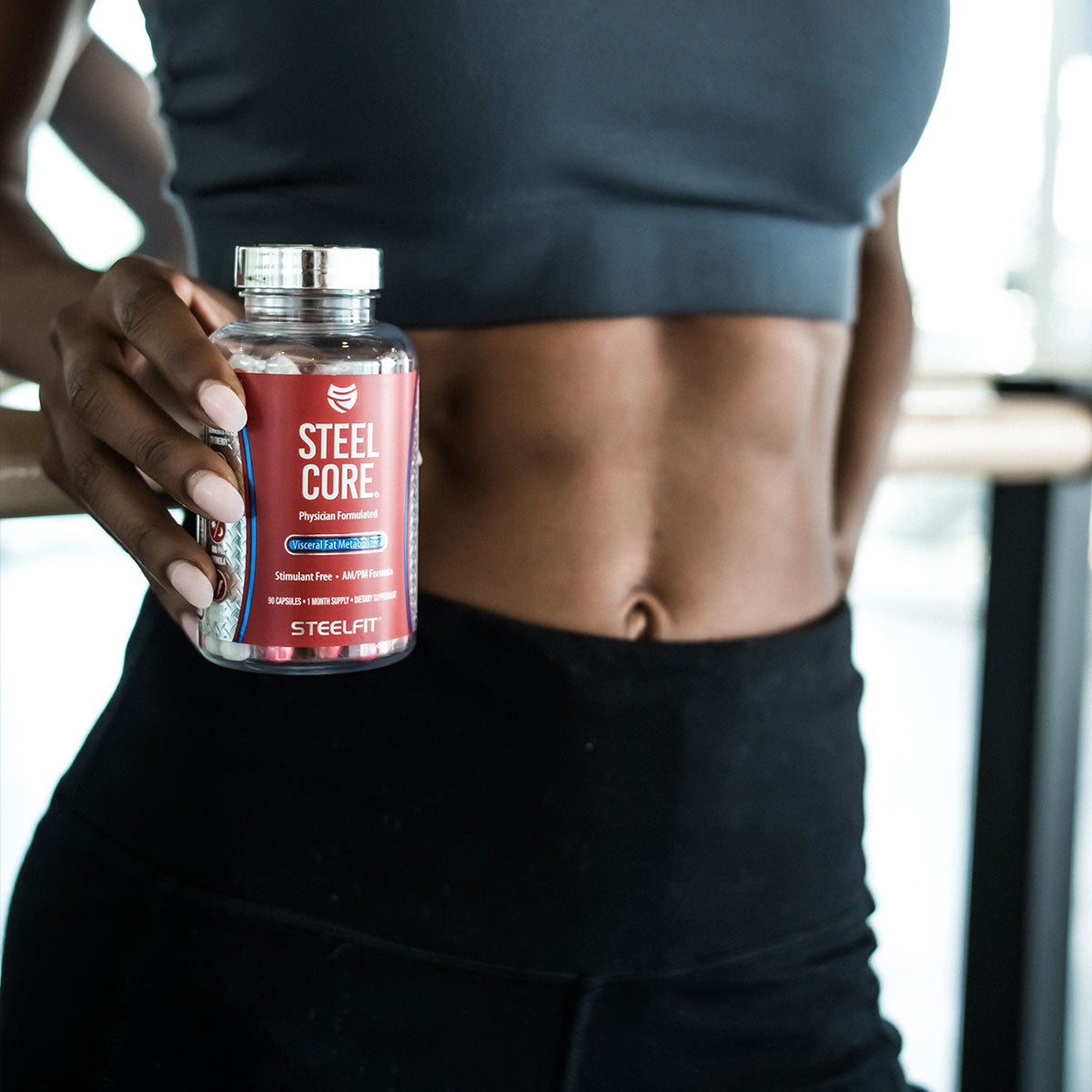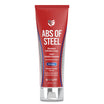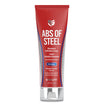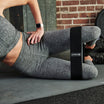What Are Calories?
A calorie is a unit of energy. It first came into use as a unit of heat sometime between 1787 and 1824. However, it wasn’t until Atwater's 1887 article on food energy in Century magazine that the more modern connotation of calories (the amount of energy a given food contains) became commonplace. Initially, researchers defined a calorie as the amount of heat needed to raise the temperature of 1 kilogram (2.2 lbs) of water 1℃. <1] Today's "Calorie," as we know it, is a kilocalorie (1000 calories) according to the original definition. Following the release of Atwater's USDA Farmers' Bulletins in 1894, Calories entered the American vernacular and began to be used dietetics 2,3> Even back then, Americans were interested in keeping their weight under control, and the "Calorie" (kilocalorie) was used in magazines, diet books, and textbooks. And, as you’re aware today, the Calorie is the most heavily emphasized feature on the nutrition facts panels on U.S. food labels.How Many Calories Should I Eat a Day?
This is an all-too-common question amongst those seeking to maintain and lose weight. The reality is that the number of calories an individual needs is highly variable. A person's caloric needs depend on several factors, including:- Age
- Sex
- Height
- Weight
- Amount of Physical Activity
- Amount of Lean Body Mass
- The average woman needs to eat around 2000 calories per day to maintain her weight, and 1500 calories to lose one pound of weight per week.
- The average man needs ~2500 calories to maintain his weight, and 2000 calories to lose one pound of weight per week.
How Many Calories Should I Eat to Lose Weight?
Much like the question, “how many calories should I eat each day?”, the question, “how many calories do I need to lose weight” isn’t a one size fits all prescription for every person in every situation. Generally speaking, to lose one pound of weight per week, you need to have a weekly calorie deficit of 3500 calories. The reason for this is that one pound of fat is ~3500 calories. Therefore, if you consume 500 fewer calories than your body requires every day of the week, you’ll arrive at your 3500-calorie deficit. Now, how do you know if you are in a calorie deficit? Well, that requires two big things:- You diligently track your nutrition (otherwise how else are you going to know how many calories you’re roughly eating each day), and
- You have a reasonable estimate of your maintenance calories.
Figuring Out TDEE
Now, to calculate how many calories your body needs to maintain its present weight, you need to compute your total daily energy expenditure (TDEE). This factors in your age, height, weight, sex, and activity level. You can calculate TDEE by hand or you can use one of the many online TDEE calculators that are available. If you prefer the latter option, here’s one of our preferred calculators.Tracking Daily Calorie Intake
There are A LOT of options available for individuals seeking to track their daily calorie intake more diligently. You can go the old school route and write down everything in a food journal, or you can use a food tracking app, such as FitDay or MyFitnessPal. There are also online calorie counters available too. One of the best online calorie counters is Cron-O-Meter. These online calorie counting websites are similar to the nutrition tracking apps you've used before but come with a few advantages over smartphone apps. Namely, Cron-O-Meter tracks all of your daily micronutrients, including vitamins, minerals, and trace elements in addition to your activity, diet, and bodyweight. Additionally, Cron-o-meter can also be tailored to a specific diet, such as a low-carb diet (e.g., paleo diet) or a low-fat vegetarian diet. When selecting one of these popular diets, Cron-O-Meter will change the macronutrient recommendations based on the constructs of the diet. Furthermore, the website version of Cron-O-Meter is free, while the app costs about $3. One thing to note is the Cron-O-Meter does not divide the food diary into meals the way that other food tracking apps such as MyFitnessPal do.Setting Up a Fat Loss Diet
As we stated above, to lose around one pound per week, you need to create a weekly energy deficit of 3500 calories. The most efficient way to do this is using a combination of diet and exercise, which you’re hopefully already doing. So, after a few days of tracking every bite of food you take as well as your body weight, you’ll have an idea of how many calories you’re eating to maintain your weight. Once you have that figured out, you can then subtract 500 calories from that number to create the energy deficit needed to lose weight. Eat this amount for two weeks while keeping your current exercise regimen as is and assess progress. If you’re steadily losing 1-2 pounds per week, you’re on the right track. If you’re not losing at least one pound per week, you will either need to remove another 100-200 calories from your diet or add in an extra cardio session or two to create the energy deficit needed to facilitate weight loss.Macronutrient Goals for Fat Loss
Losing weight is great, but to optimize body composition, you should be focused on losing fat, not just weight. The reason for this is that if you focus solely on losing weight, that means you become obsessed with seeing a certain number on the scale as opposed to the ratio of lean muscle mass to body fat (body composition). Note that this approach often leads to drastically cutting calories, muscle loss, and winding up with the dreaded “skinny fat” look at the end of the diet. When you focus on fat loss instead of just weight loss, you place a premium on retaining lean muscle and structuring your diet and exercise routine to support those goals so that at the end of your diet, you have the lean, toned physique you’ve always wanted. So, what’s a diet tailored for fat loss look like? Consuming enough protein is paramount to retaining lean muscle mass while dieting. Based on the current body of scientific research, dieters should consume around 1-1.5 grams of protein per pound of body weight each day to guard against excessive muscle breakdown when dieting. Fat intake should be in the range of 0.3-0.5 grams per pound each day, and carbohydrates will account for the remaining calories that you have left.How to Reduce Calorie Intake Without Starving
There are no two ways about it -- to lose weight, you MUST be in a negative energy balance, which means your energy output must be higher than your energy input. In other words, for the average person losing weight is about calories in vs. calories out. While the concept may seem simple, it's quite a bit harder for people to stick to lower calorie diets than you might think. The reason for this is that an individual's hunger usually overtakes their motivation and willpower, leading them to eat too many calories and bring their dieting efforts to a grinding halt. And, make no mistake, when you diet for fat loss, being hungry is a part of the game, but it doesn’t have to be so extreme or intense that all you’re thinking about 24/7 is food (or how little of it you get to it). We’ve assembled some of the best tips around to help you reduce your calorie intake without feeling like you’re starving.
Eat More Protein
As we mentioned above, when dieting for fat loss, protein takes priority. No ifs, ands, or buts about it. What are the benefits of eating more protein? Well, not only is protein imperative for preserving muscle during a calorie deficit, but it’s also one of the most powerful weapons you have to avoid ravenous hunger pangs when dieting. The reason for this is the protein is highly satiating, meaning it keeps you feeling fuller for longer. One study showed that individuals consuming a high-protein diet (30% of total daily calories as protein) consumed an average of 441 fewer calories per day! <5> In addition to helping you feel fuller, consuming higher amounts of protein may also help reduce time spent thinking about food, and wanting to snack.
More specifically, a small study in overweight/obese individuals found that when subjects consumed 25% of daily calories as protein, they reported having significantly less (60% drop!) in obsessive thoughts about food by 60%, and they also experienced a reduction in the desire for late-night snacking by 50%.<6> The final reason that you want to consume a high protein diet when eating a reduced-calorie diet is that protein is the most metabolically expensive macronutrient for your body to digest and metabolize. In other words, your body burns more calories breaking down and utilizing protein than it does either carbohydrates or fat. Studies show that consuming high-protein diets may elevate energy expenditure by an additional 80-100 calories per day. <7,8> While this is a small amount compared to the total number of calories you burn in a day, every last bit helps when trying to lose weight. If you need help consuming the right amount of protein in your diet, don't hesitate to incorporate a protein powder into your diet.
Drink Enough Water
Proper hydration is essential to overall health and wellness as well as optimal performance both physically and mentally. And, it just so happens that drinking more water may also help you lose weight too. Research has shown that drinking 500mL of water 30 minutes (as part of a reduced-calorie diet plan) before a meal may help lead to more significant weight loss than merely following a reduced-calorie diet alone. <9> Researchers believe this is because drinking more water before mealtime may help to decrease total energy intake when dining. <9>Get 7-9 Hours of Sleep
Getting enough sleep is imperative to healthy weight loss and keeping hunger at bay while dieting. The reason sleep is so crucial to weight loss success is largely due to the impact sleep has on hormones directly associated with hunger, satiety, and energy regulation in the body. You see, hormones act signaling molecules that regulate our physiology and behavior. Inadequate sleep disrupts the delicate balance of hormones, including <10,11,12>:- Increases Ghrelin -- the “hunger” hormone
- Decreases Leptin -- the “satiety” hormone
- Increases Cortisol -- the “stress” hormone, which can make us hungrier
- Decreases Insulin Sensitivity -- thereby throwing a wrench in nutrient partitioning
- Increases Protein Breakdown
- Decreases Fat Oxidation
Avoid Sugary Drinks (Including Fruit Juices)
You've heard it before, and we'll say it again -- calorie-containing beverages are empty calories, all the more so when you are dieting. The reason for this is that sugary drinks like soda and fruit juices pack a lot of energy (calories), but they do very little to satisfy your hunger, which means you'll end up eating the same amount of calories (or more) to feel full. Due to the calorie content of the drinks + the food you're eating, you'll end up blowing your diet. Furthermore, these energy-riddled drinks are generally void of any protein, making it doubly ineffective for keeping hunger at bay. When dieting, keep your beverage choices to water, black coffee, and unsweetened tea. The occasional diet soda is ok too for those that want something a little on the sweeter side.Lift Weights and Perform (Some) Cardio
Just as protein is the pillar of macronutrients when dieting for fat loss, resistance-training (i.e., lifting weights) is the pillar of your exercise regimen. The reason for this is that resistance-training provides the stimulus your body needs to retain lean muscle amidst a calorie deficit. Without it, your body doesn’t receive the necessary signals it needs to retain muscle tissue, and given that muscle tissue is metabolically expensive for the body to retain, it will break it down for energy when you’re not consuming enough calories. Therefore, if you perform no other type of physical activity when dieting, at the very least, you should be lifting weights (preferably 3-5 times per week). Now, to not have to cut calories as low when dieting, make individuals choose to perform greater amounts of exercise, typically in the form of steady-state cardio. While cardio certainly does increase the number of calories you burn in a day, performing too much comes at a cost. Namely, chronic cardio can impair recovery from resistance-training workouts, which means you won’t be able to lift as much weight as you typically are capable of. Furthermore, steady-state cardio doesn’t do much for building or retaining muscle mass either. And, finally, the body adapts to the energy expenditure from cardio rather quickly. If you do choose to perform cardio when cutting, we're fans of high-intensity interval training (HIIT, for short). The reason for this is that HIIT training is better at preserving and building lean mass than steady-state cardio, and it burns the same amount of calories but requires only a fraction of the time commitment.Why Understanding Your Caloric Needs is Important
Weight loss and weight gain are ultimately about how many calories you consume each day. If you consume more calories than you burn, you will gain weight. Conversely, if you consume fewer calories than you burn in a given day, you will lose weight. To know how many calories you need to eat to lose weight, you need to track your daily food intake and also calculate your total daily energy expenditure. With these two numbers, you can tailor your diet such that you place yourself in a calorie deficit, thereby facilitating fat loss. Finally, dieting doesn’t mean starvation. Consuming enough protein, getting enough sleep, and drinking more water can all help you to feel greater satiety from your meals and stick to your diet long term.References
- James L. Hargrove, History of the Calorie in Nutrition, The Journal of Nutrition, Volume 136, Issue 12, December 2006, Pages 2957–2961, https://doi.org/10.1093/jn/136.12.2957
- Atwater WO. Foods: nutritive value and cost. USDA Farmer's Bulletin. 1894;23:1–32.
- Atwater WO. Principles of nutrition and nutritive value of food. USDA Farmer's Bulletin. 1910;142:1–48.
- "Appendix 2. Estimated Calorie Needs Per Day, by Age, Sex, and Physical Activity Level." Home of the Office of Disease Prevention and Health Promotion - Health.gov, health.gov/dietaryguidelines/2015/guidelines/appendix-2/.
- Weigle, D. S., Breen, P. A., Matthys, C. C., Callahan, H. S., Meeuws, K. E., Burden, V. R., & Purnell, J. Q. (2005). A high-protein diet induces sustained reductions in appetite, ad libitum caloric intake, and body weight despite compensatory changes in diurnal plasma leptin and ghrelin concentrations. The American Journal of Clinical Nutrition , 82(1), 41–48.
- Leidy HJ, Tang M, Armstrong CL, Martin CB, Campbell WW. The effects of consuming frequent, higher protein meals on appetite and satiety during weight loss in overweight/obese men. Obesity (Silver Spring). 2011;19(4):818–824. doi:10.1038/oby.2010.203
- Veldhorst, M. A. B., Westerterp, K. R., van Vught, A. J. A. H., & Westerterp-Plantenga, M. S. (2010). Presence or absence of carbohydrates and the proportion of fat in a high-protein diet affect appetite suppression but not energy expenditure in normal-weight human subjects fed in energy balance. The British Journal of Nutrition, 104(9), 1395–1405. https://doi.org/10.1017/S0007114510002060/
- Veldhorst, M. A. B., Westerterp-Plantenga, M. S., & Westerterp, K. R. (2009). Gluconeogenesis and energy expenditure after a high-protein, carbohydrate-free diet. The American Journal of Clinical Nutrition, 90(3), 519–526. https://doi.org/10.3945/ajcn.2009.27834
- Dennis EA, Dengo AL, Comber DL, et al. Water consumption increases weight loss during a hypocaloric diet intervention in middle-aged and older adults. Obesity (Silver Spring). 2010;18(2):300–307. doi:10.1038/oby.2009.235
- Nedeltcheva AV, Kilkus JM, Imperial J, Schoeller DA, Penev PD. Insufficient sleep undermines dietary efforts to reduce adiposity. Ann Intern Med. 2010;153(7):435–441. doi:10.7326/0003-4819-153-7-201010050-00006
- Taheri S, Lin L, Austin D, Young T, Mignot E. Short sleep duration is associated with reduced leptin, elevated ghrelin, and increased body mass index. PLoS Med. 2004;1(3):e62. doi:10.1371/journal.pmed.0010062
- Schmid, S. M., Hallschmid, M., Jauch-Chara, K., Born, J., & Schultes, B. (2008). A single night of sleep deprivation increases ghrelin levels and feelings of hunger in normal-weight healthy men. Journal of Sleep Research, 17(3), 331–334. https://doi.org/10.1111/j.1365-2869.2008.00662.x




















